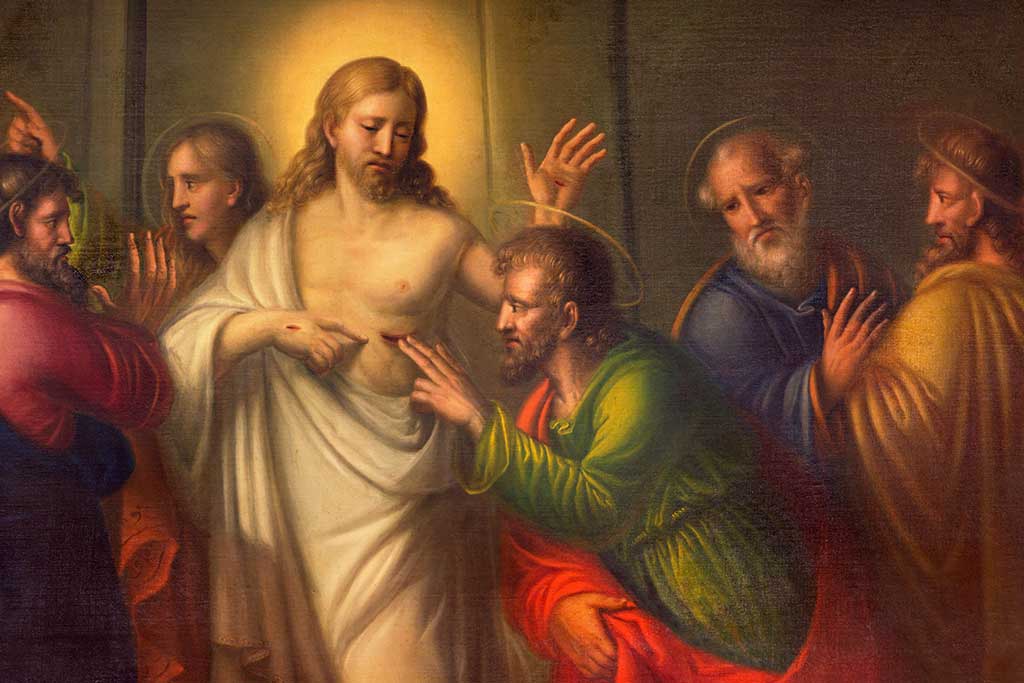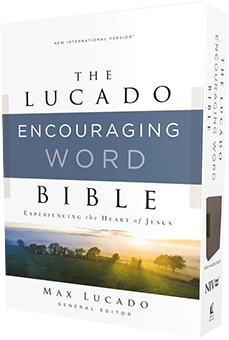
Thomas Doubts, Keeps the Faith
The patriarch of the Judeo-Christian faith had trouble at times telling the truth, yet nobody calls him Lying Abraham. Israel’s great lawgiver once beat a man to death, but he isn’t remembered as Murdering Moses. The message of the Bible is that we’re not defined by our worst moments. The gospel says that, in Christ, God expunges our failures. Grace, not sin, gets the last word. Aren’t you thankful for such good news?
Why then do we persist in speaking of Doubting Thomas?
Thomas was one of Jesus’ most loyal followers. The Gospels portray him as reflective, not talkative. On the three occasions where his words are recorded, it’s clear Thomas thought long and hard before speaking.
Once, in the wake of a friend’s death, Thomas broke the silence, saying that he was willing to die for Jesus if it came to that (see John 11:16). On the night before the crucifixion, when Jesus talked cryptically about going away, Thomas let it be known he wasn’t keen on the idea of being separated from Jesus (see John 14:5).
So when everything came crashing down the following day, Thomas was devastated. They all were, of course, but Thomas seemed to take it especially hard. While the rest huddled together in fear, Thomas was not with them. On Resurrection Sunday, when Jesus appeared to his disciples, Thomas was nowhere to be found.
He emerged from hiding to find his buddies beside themselves with joy. “We have seen the Lord!” they exclaimed. Thomas wasn’t buying it: “Unless I see the nail marks in his hands and put my finger where the nails were, and put my hand into his side, I will not believe” (John 20:25). This may sound like hard-heartedness, but it wasn’t. We know this because a few days later, when Jesus graciously appeared to Thomas, he fell to his knees and confessed, “My Lord and my God!” (John 20:28).
A week later his disciples were in the house again, and Thomas was with them. Though the doors were locked, Jesus came and stood among them and said, “Peace be with you!” Then he said to Thomas, “Put your finger here; see my hands. Reach out your hand and put it into my side. Stop doubting and believe.” Thomas said to him, “My Lord and my God!” (John 20:26-28)
Stubborn unbelief says, “I’m happy where I am, and no amount of evidence will change my mind.” Honest doubt says, “I want to believe but I’m struggling. I just need a little help.”
Doubting Thomas? One week of weakness doesn’t tell the whole story of his—or anyone else’s—life. Tradition claims Thomas sailed to India to preach the gospel, eventually dying for the risen One who’d resurrected his flagging faith. Sounds more like Trusting Thomas.
For Reflection
Are you a person who tends to doubt before you believe? If your doubt leads to questions that lead to answers, it has served a good purpose. Let your doubt deepen your faith as you search and seek the answers you need.
Drawn from the NIV Lucado Encouraging Word Bible.

The Lucado Encouraging Word Bible, NIV Edition
The Lucado Encouraging Word Bible, NIV Edition offers encouragement in God’s Word with a masterful collection of Max Lucado’s encouraging words curated from his more than forty years of sermons, books, and articles interspersed in Scripture.
Learn More





